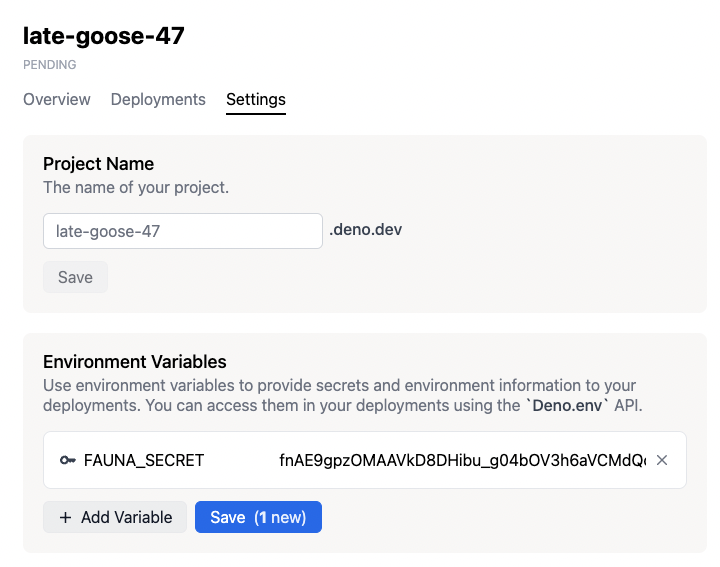On this page
Environment variables
Environment variables are useful to store values like access tokens of web
services. Each deployment has a set of environment variables defined at the
moment of creation and accessible from the code via the Deno.env API. There
are 2 ways to define the environment variables of a deployment:
Project environment variables Jump to heading
You can define environment variables at the project level. When you create a deployment, it will get the set of environment variables the the project has defined at that particular moment.
For convenience, When you change the environment variables of a project, the current production deployment is redeployed, creating a new production deployment with the new set of environment variables.
Deployments are immutable, including their environment variables. Changing the environment variables of a project does not change the environment variables of existing deployments.
To add an environment variable to your project, click on the Settings button on the project page and then on Environment Variables from the sidebar. Fill in the key/value fields and click on "Add" to add an environment variable to your project.

Deployment environment variables Jump to heading
When deploying using deployctl, you can specify environment variables
using the --env or --env-file flags,
complementing the environment variables already defined for the project. These
env variables will be specific for the deployment being created.
Default environment variables Jump to heading
Every deployment has the following environment variables preset, which you can access from your code.
-
DENO_REGIONIt holds the region code of the region in which the deployment is running. You can use this variable to serve region-specific content.
You can refer to the region code from the regions page.
-
DENO_DEPLOYMENT_IDIt holds the ID of the deployment.